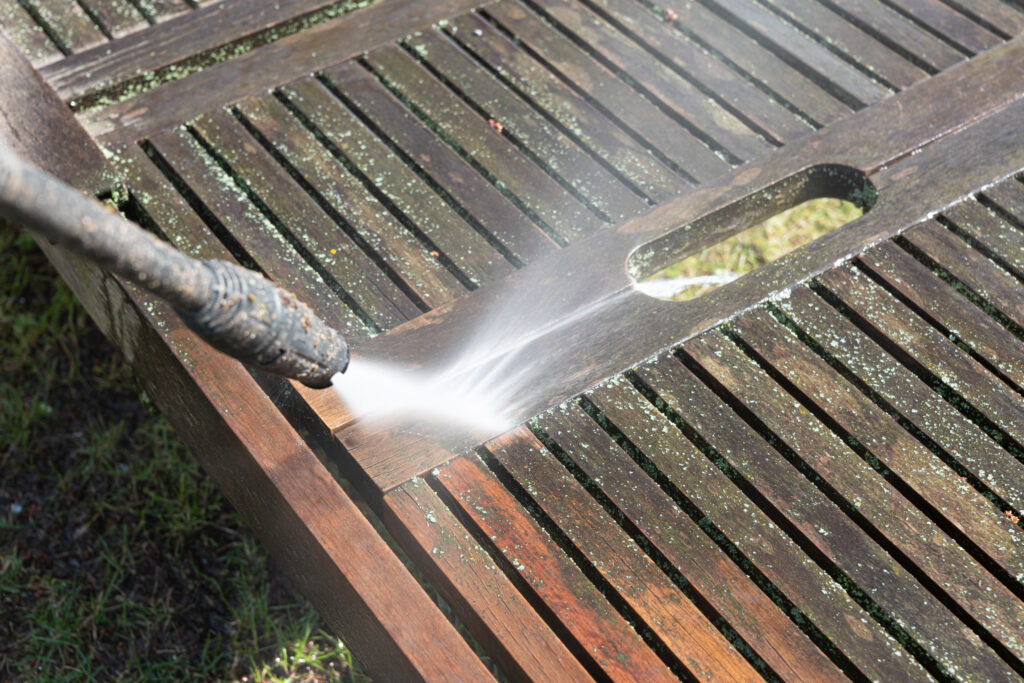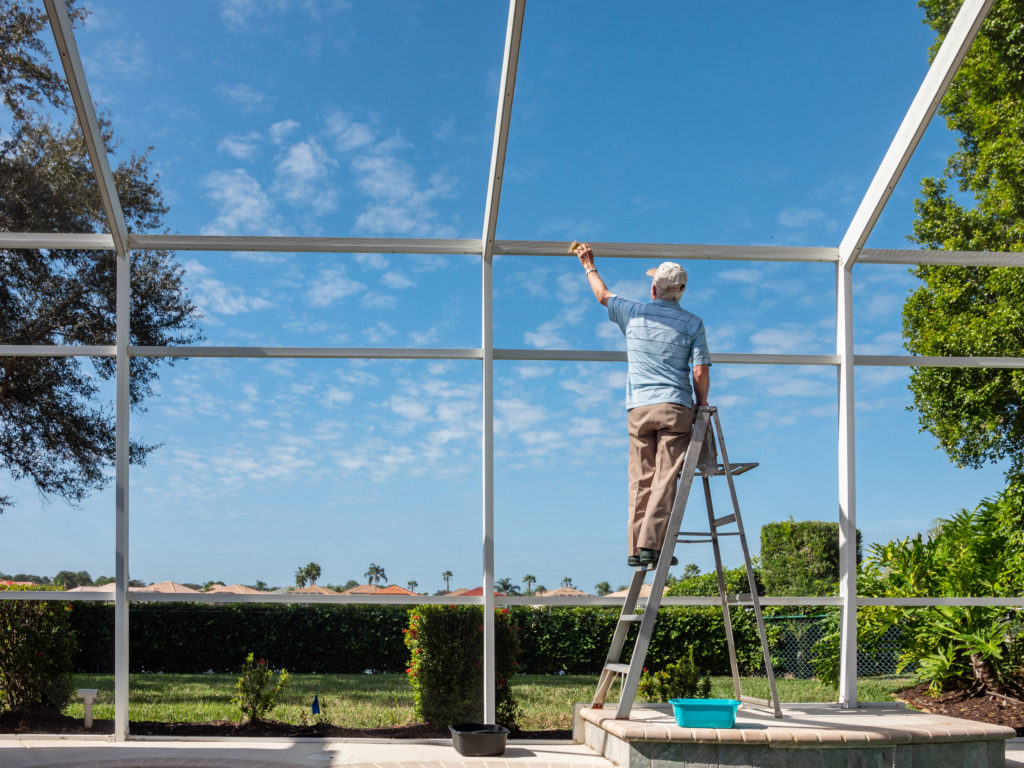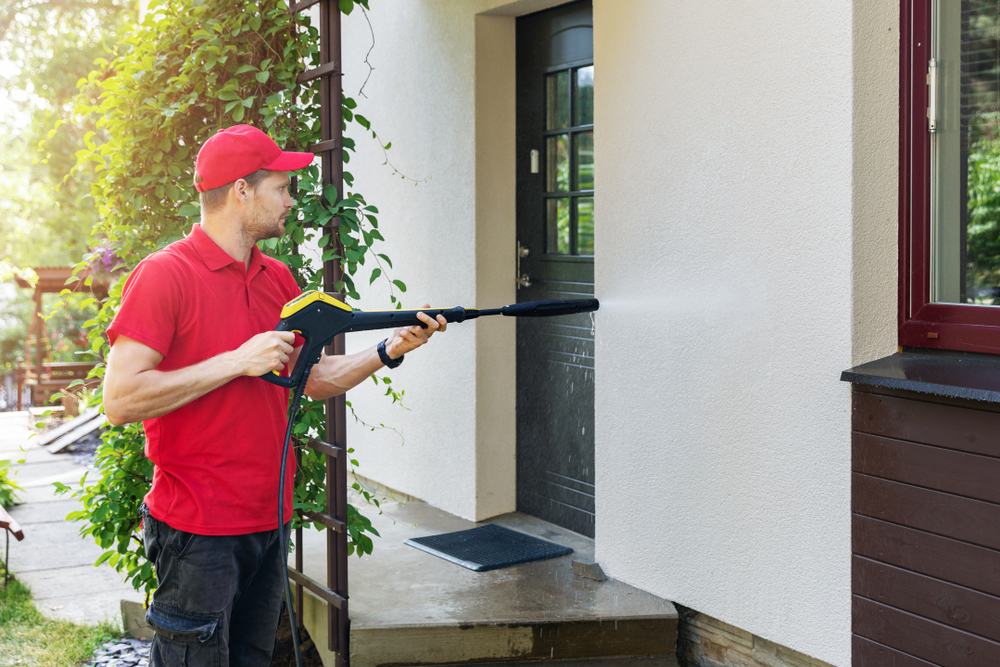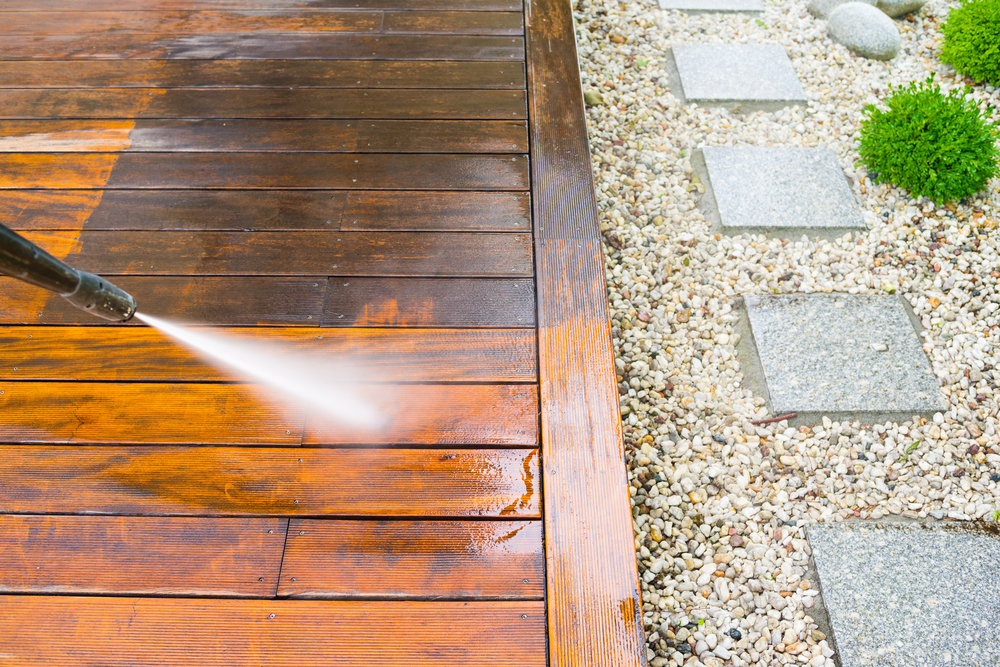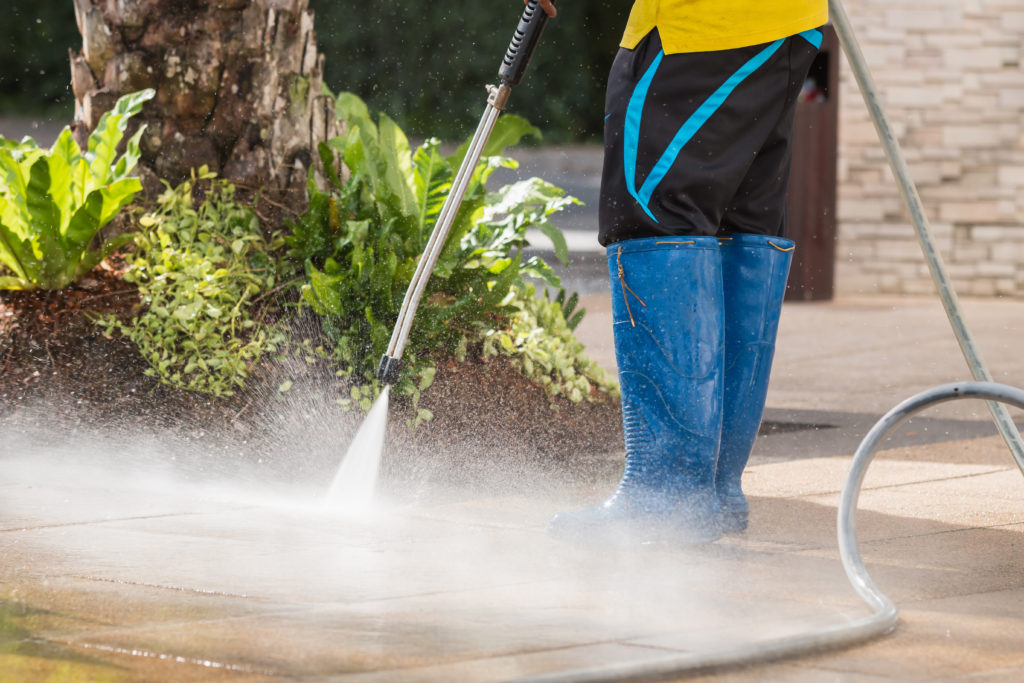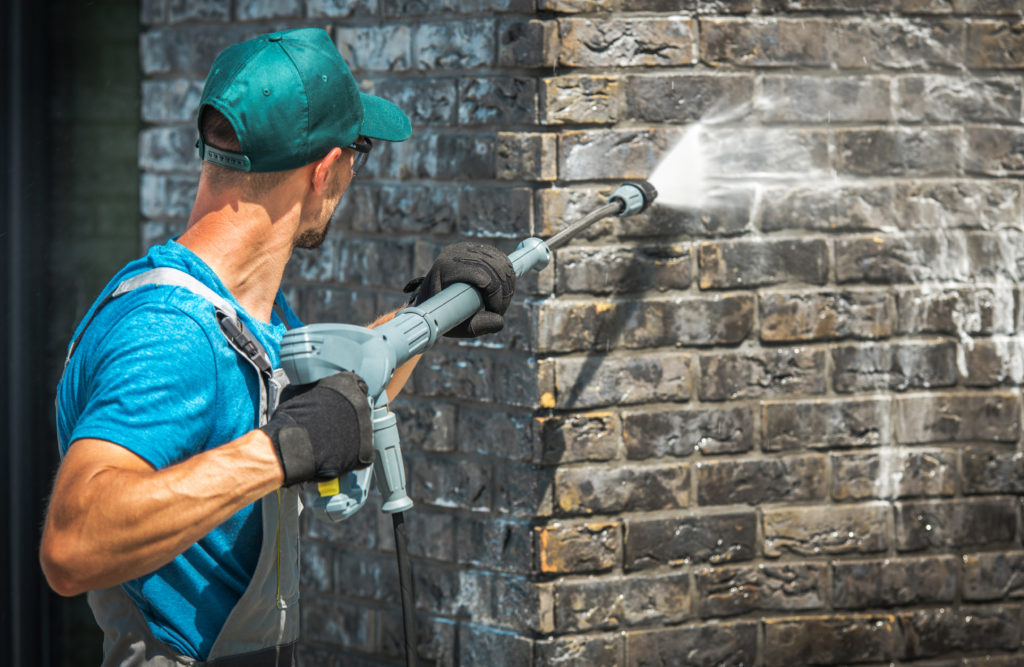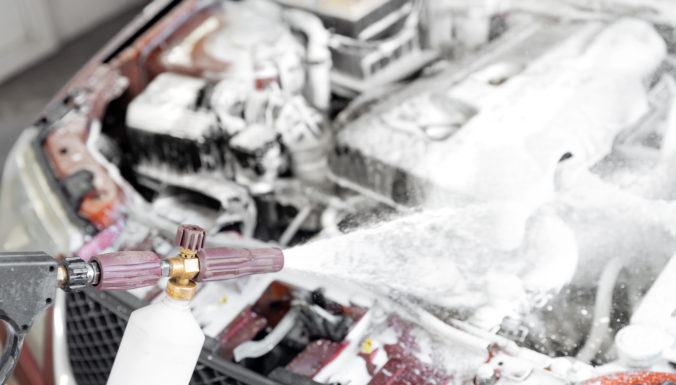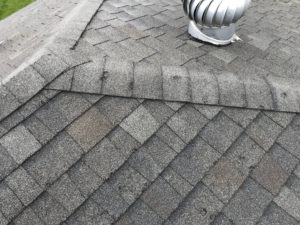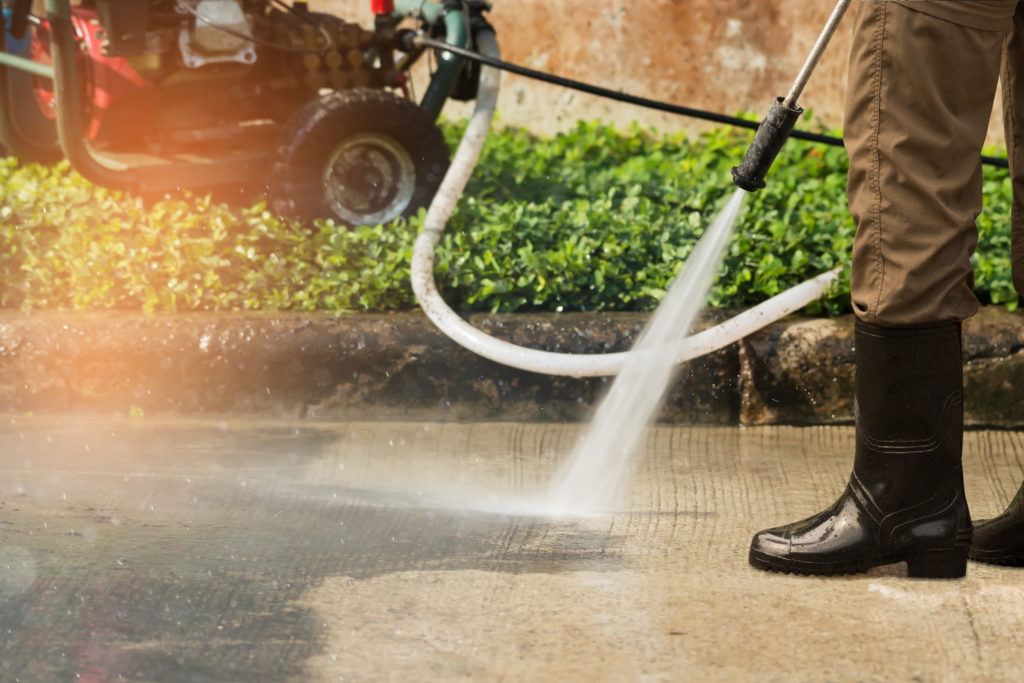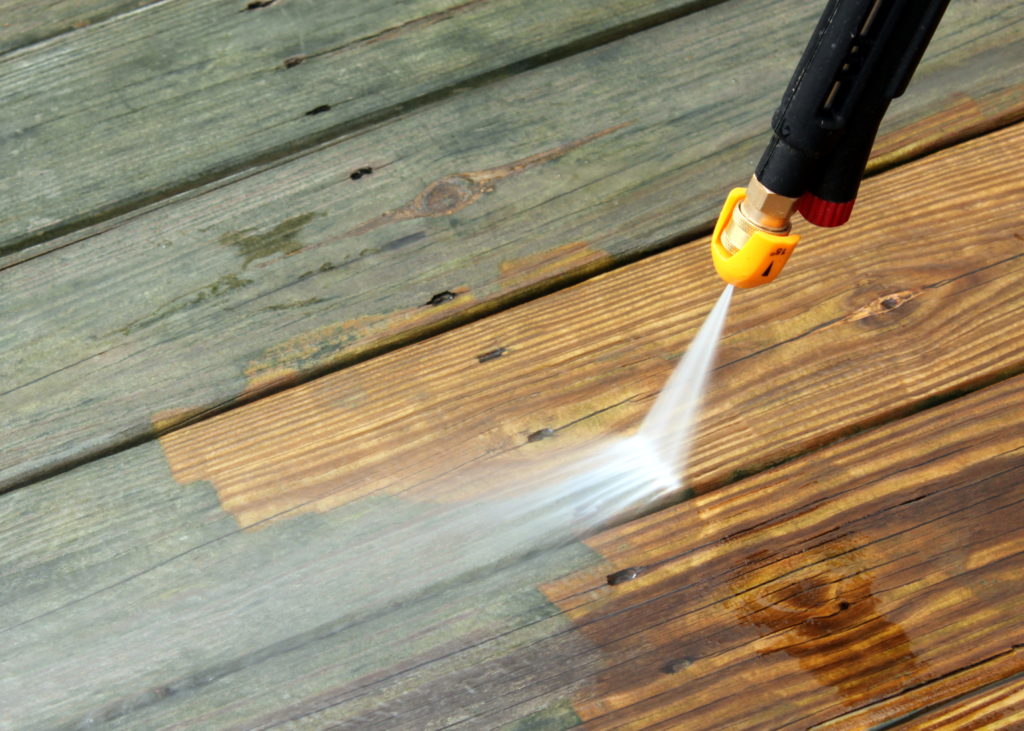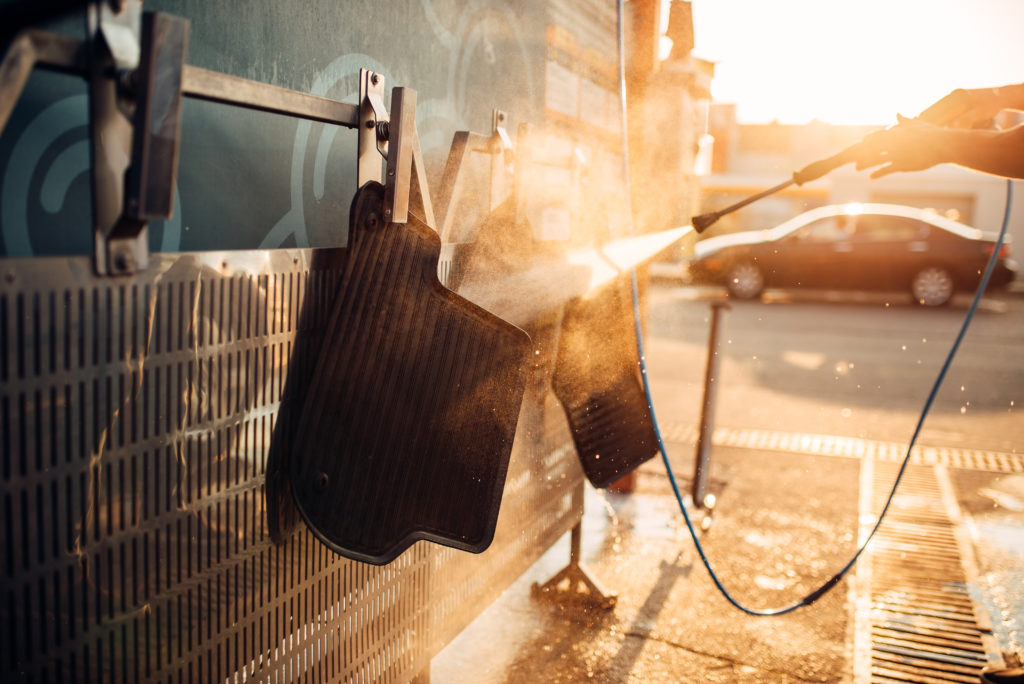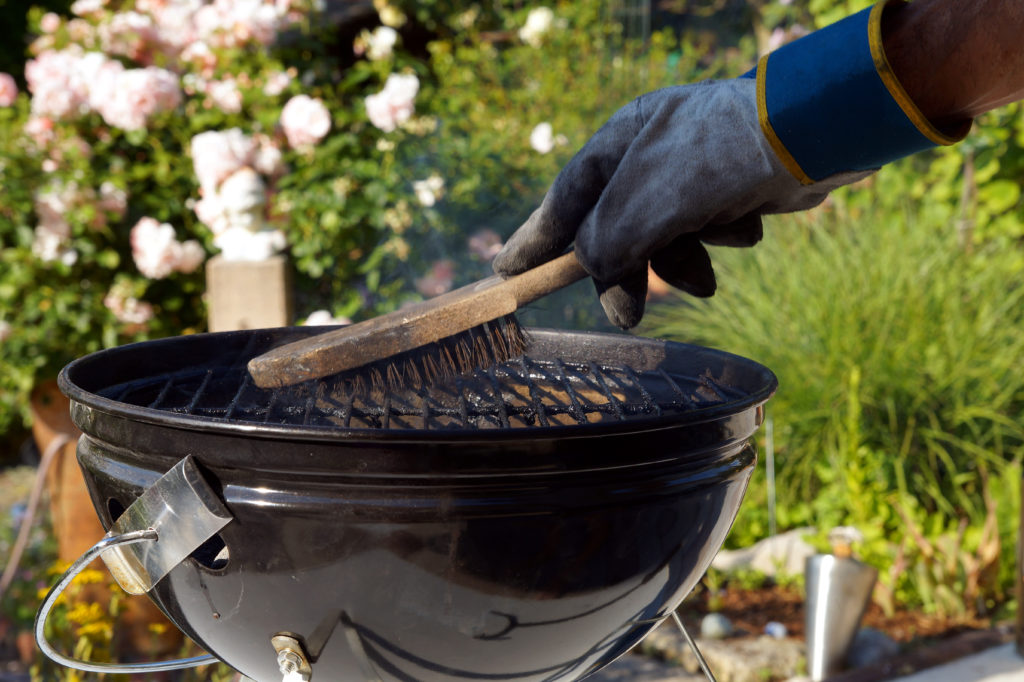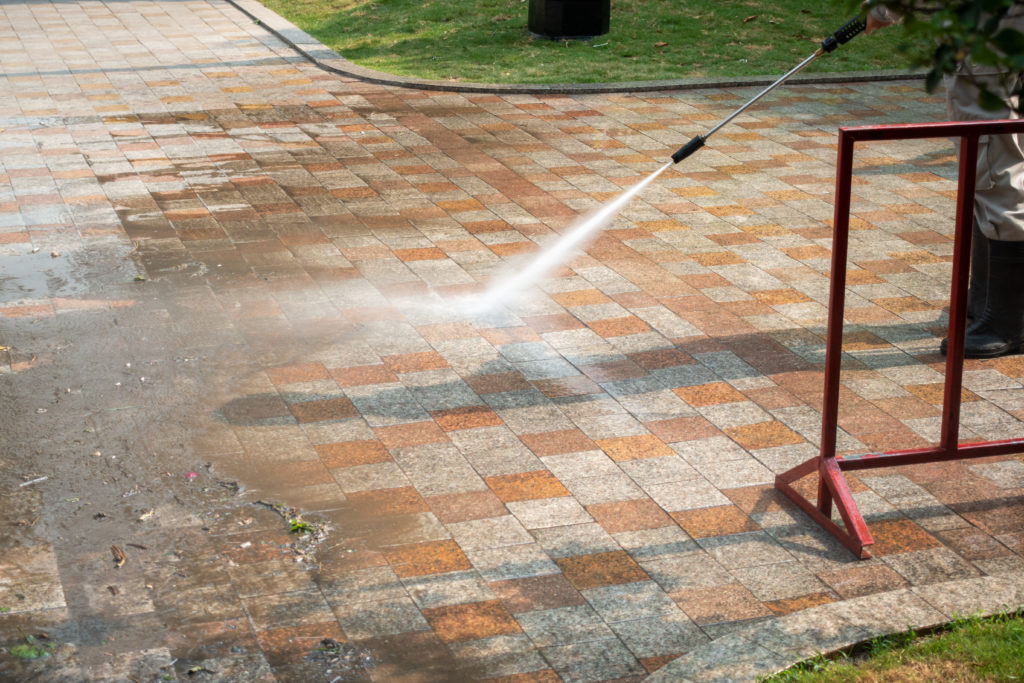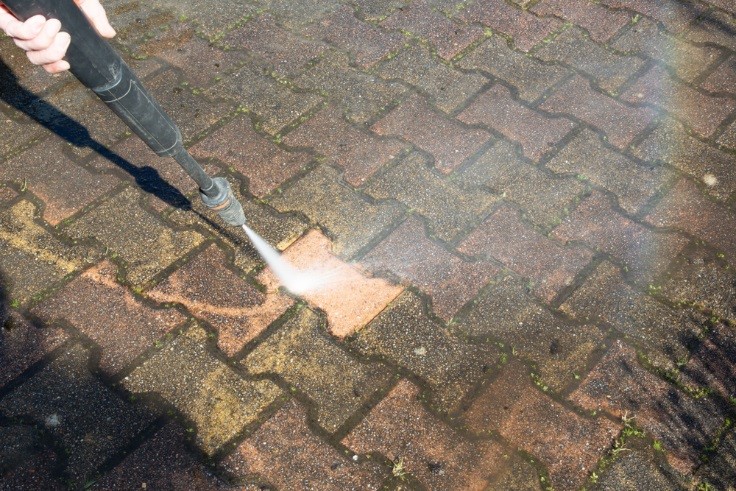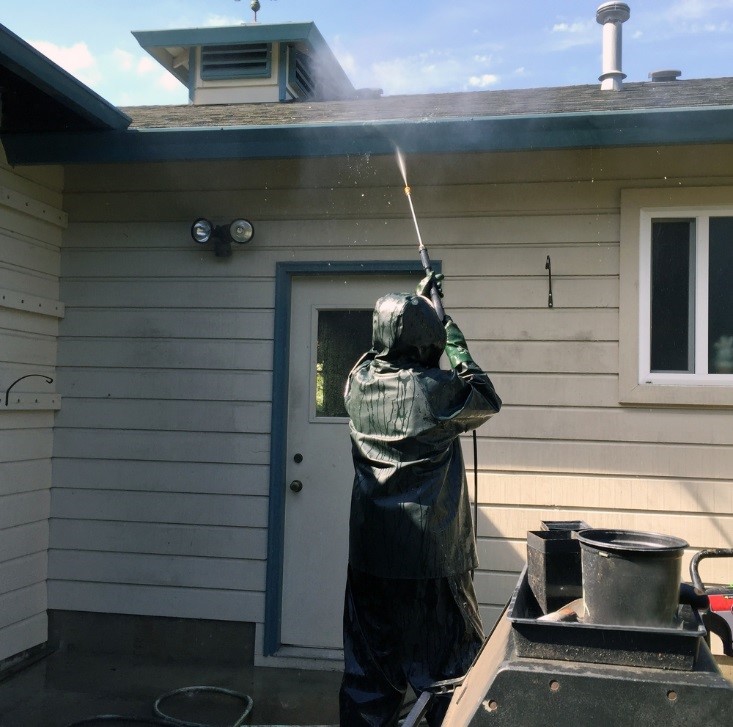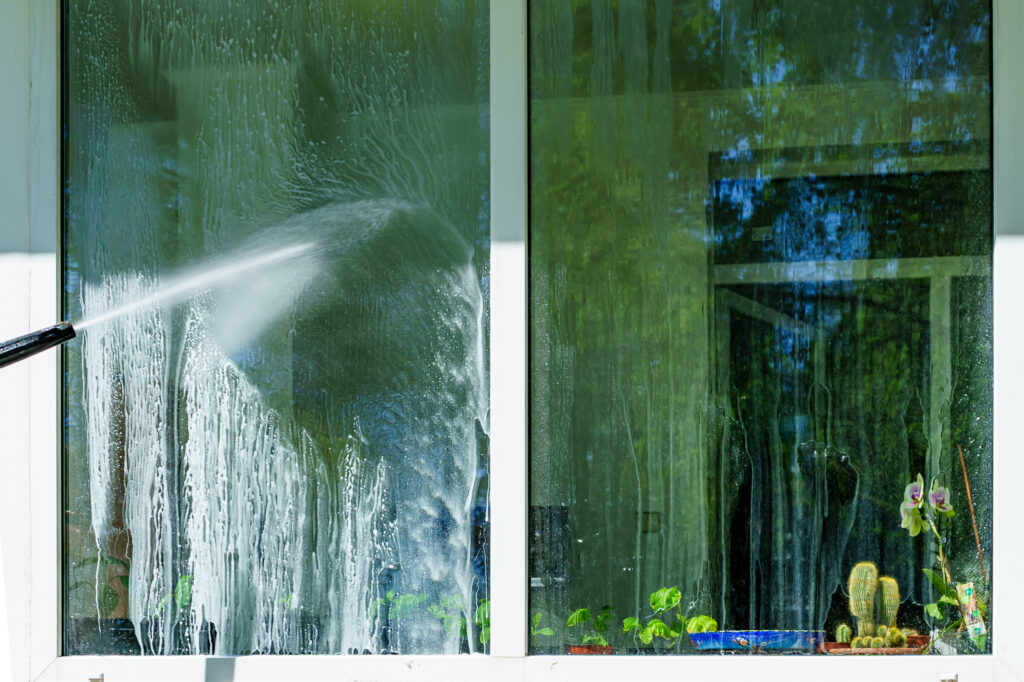
In the exterior cleaning industry, there are a variety of techniques used to remove natural elements and debris from the exterior of a building or a home. One of the most popular solutions is pressure washing, this standard practice can be very labor intensive and often creates a problem when cleaning hard to reach areas and can create more damage if not handled properly. Unlike pressure washing, soft washing is an exterior cleaning method, which uses low-pressure stream combined with special solutions, for an easy removal of bacteria, mildew, and algae from a home’s exterior and roof. Read along as we dive into a few benefits of this soft technique!
Eco-Friendly
Soft washing is an eco-friendly option that keeps your home and environment safe, without sacrificing cleanliness. Soft washing uses a biodegradable solution that destroys organism and their offspring at their root. Other exterior cleaning technique can use harsh chemicals that can damage the exterior of your home and harm the environment surrounding your home.
Money Saver
When it comes to cleaning a roof, the higher the pressure of the water used, the higher the possibility of your roof being damaged. By opting for a soft wash, you are expanding your roof’s lifespan, and therefore saving money on costly roof repairs.
Curb Appeal
Our homes go through several months of rough weather conditions. The buildup of debris and dirt starts taking a toll on the overall appearance of our home’s exterior and if left unattended can affect the look of your home. A soft washing service can help keep your home’s features and fixtures looking their best. It will clean off dirt, and any bacteria and contaminants will be killed in the process.
Call the Professionals
As you have read, there are many benefits to soft washing, which is why encourage you to try it today!
Not only is this option safe for the environment and your home, it will keep your home looking its best without any possible damages.
Get your property soft washed by our team of professionals who are experienced in a variety of exterior cleaning techniques. Learn about our services and us by visiting us online!
